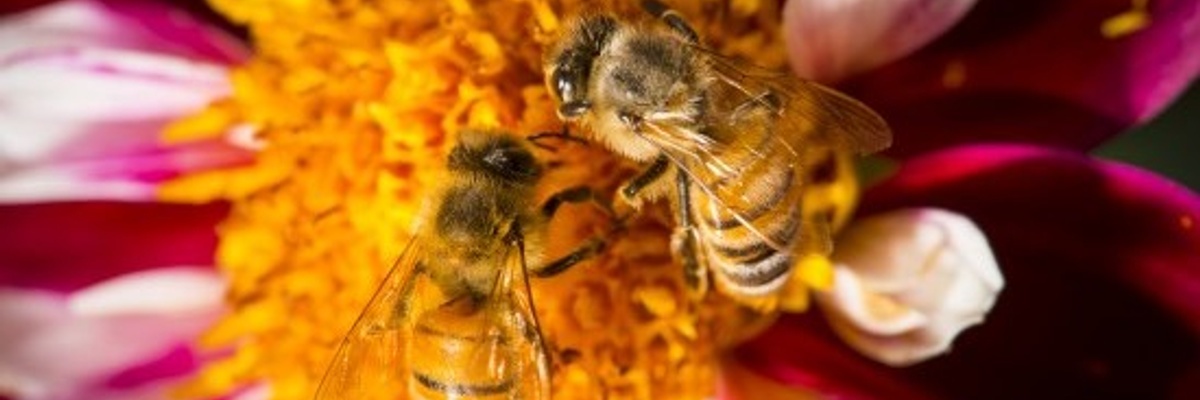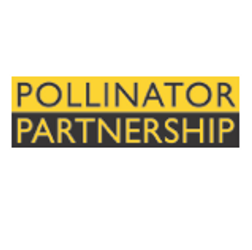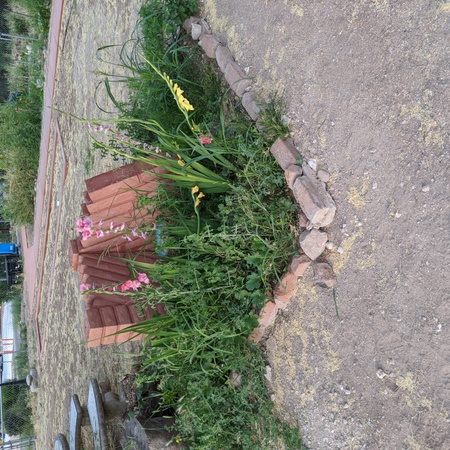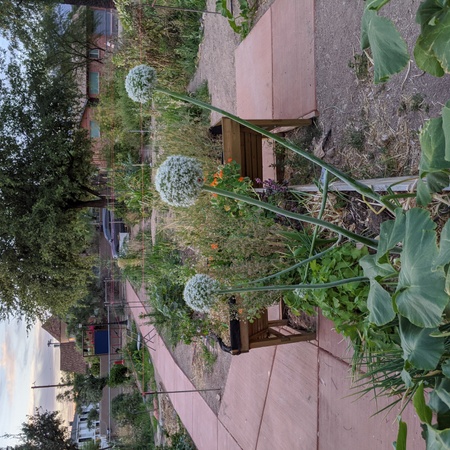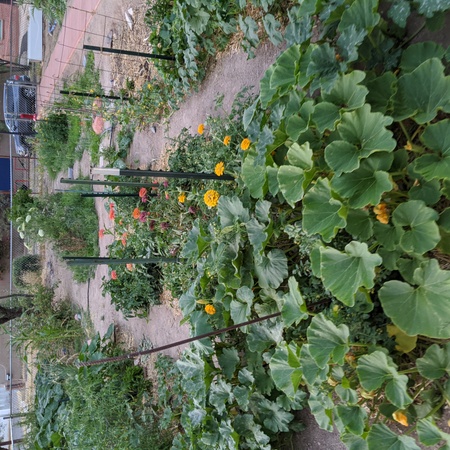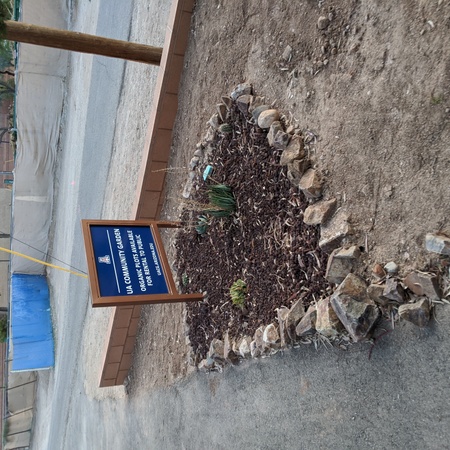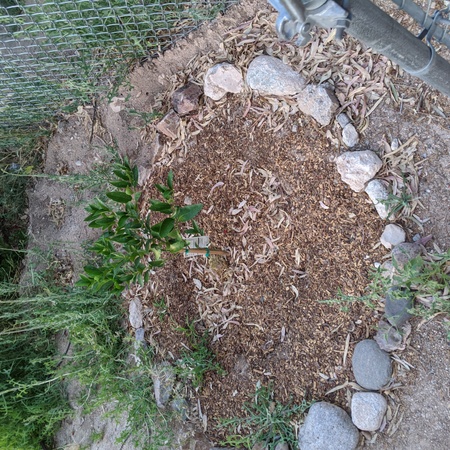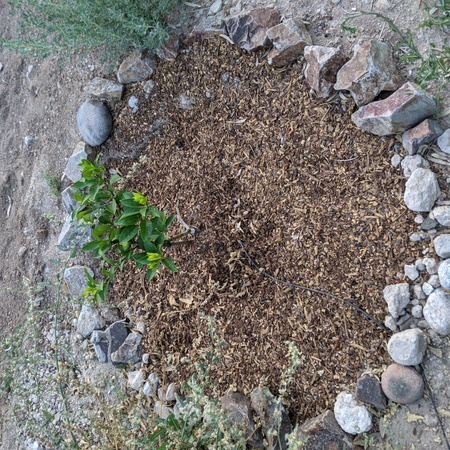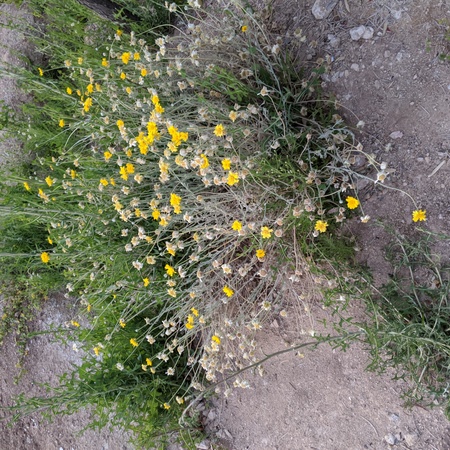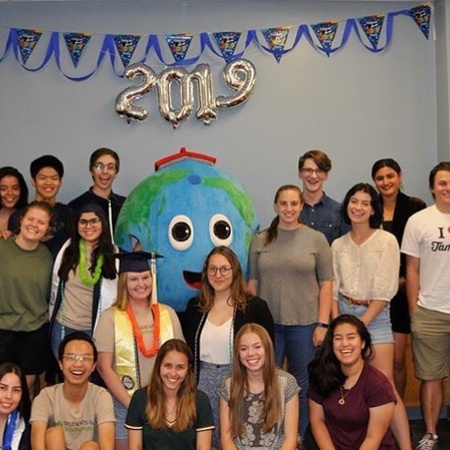The University of Arizona Community Garden is a community based local garden open to all, which seeks to make our home of Tucson a more sustainable place. Part of our mission has always been to ensure the health of our ecosystem, both local and global. With that in mind, we've long hoped to do more to protect the health of pollinators! In Tucson we have so many exciting native pollinators that are unique to our region. Hundreds of one-of-a-kind bees, birds, moths, butterflies and more frequent our flowers and crops. While our garden has always adopted organic permaculture methods to not cause harm to pollinators by using nasty pesticides and the like, we want and need to do more to provide a refuge for our pollinators.
Our community team envisions using the seed money from this grant to build dedicated pollinator habitat in our garden. We seek to add 3-5 "Pollination Realms" to our garden. Each realm would be dedicated to a specific type of pollinator, and be full of flowers specific to that pollinator, and ensure that there is at least one type of plant blooming at all times of year. For instance, we wish to create a hummingbird realm by creating a large flowerbed with many long, red flowers; hummingbird feeders; and nesting balls. A bee realm would include mason bee nesting boxes, bee friendly flowers, and a bee favorite: mesquite trees. Other realms could include a moth realm, a bird realm, or even a mammal realm. To create these, we will involve the community in our design and building process and schedule community workdays to build our "Realms."
If awarded this grant, we plan to spend the $1,260 in seed funding as follows: $300 for soil, lumber, and hardware for new planters; $500 for plants and to pay for their first year of maintenance; $200 for pollinator accessories such as hummingbird feeders and mason bee boxes; and $260 in community support costs, including refreshments for workdays, as well as tools and gloves. The oversight for these expenditures will be supported by our parent body -- the University organization "Students for Sustainability" -- to ensure that those who are most impacted by the garden have a voice in its future.
The benefits the community will receive are both immediate and long term. In our workdays, we will build bonds and connections among community, and teach locals important skills around gardening. The long term effects would be community beautification, ensuring a long term food supply, and the health of the environment. The community will also benefit by being nourished: all excess food grown in our garden goes to local food banks, and ensuring adequate pollination means that we can continue to grow and harvest crops to feed our community. Without pollinators, there is no food!
(Pictured in our photo is our garden project managers, and some of the University students and community members who will bring this project to fruition, as well as our garden mascot: Big Eartha. We have a big team that is very excited to help pollination go right!)

